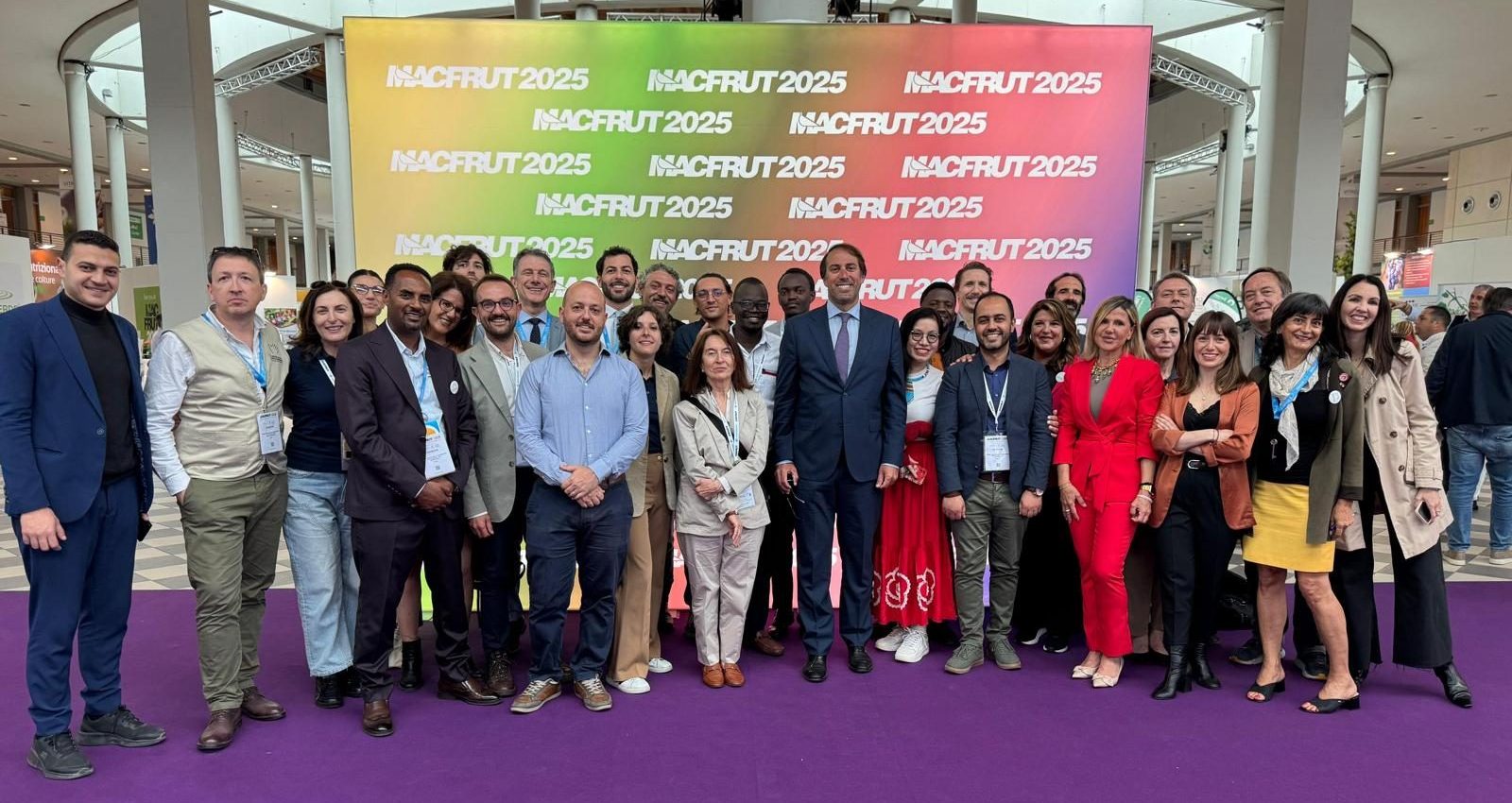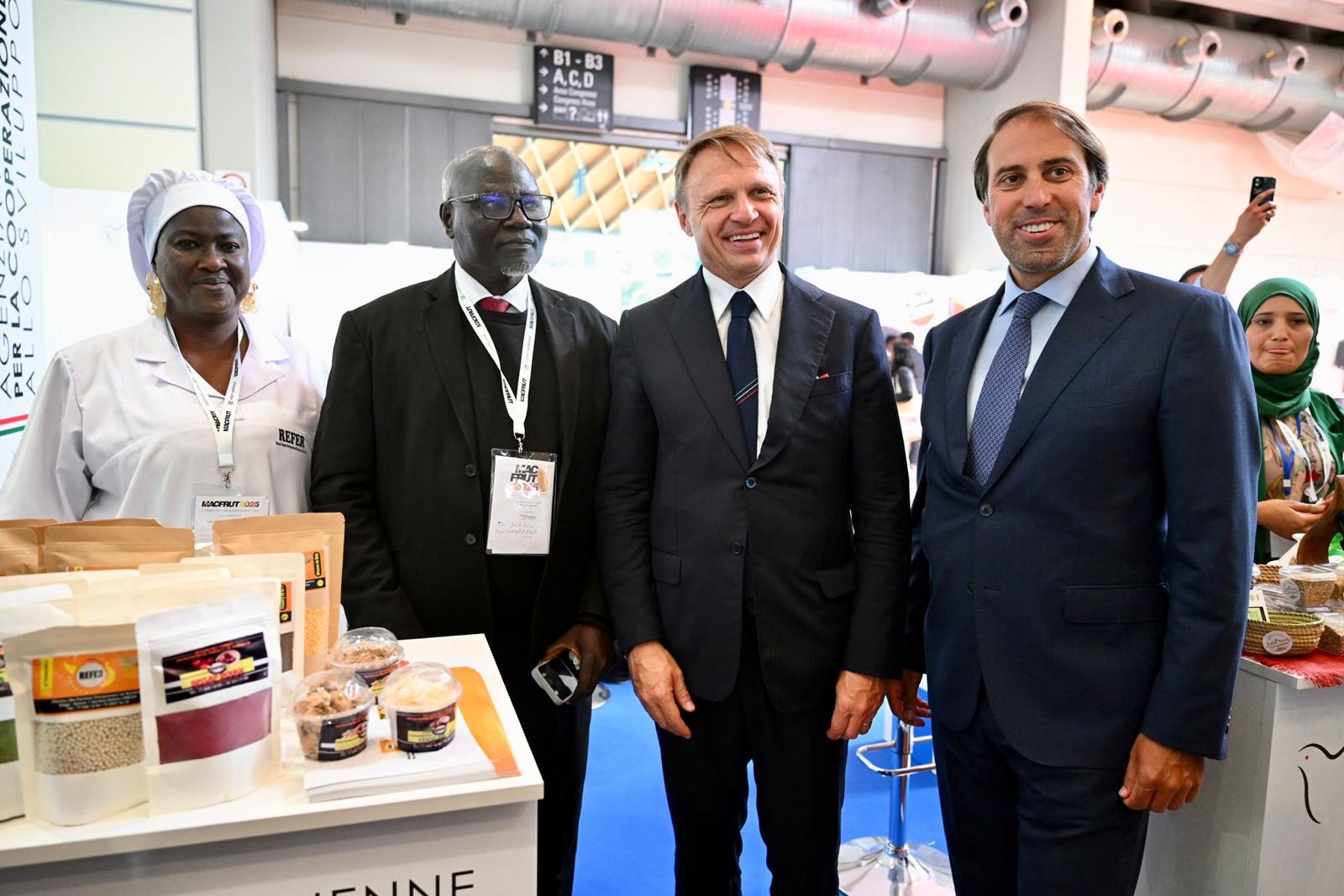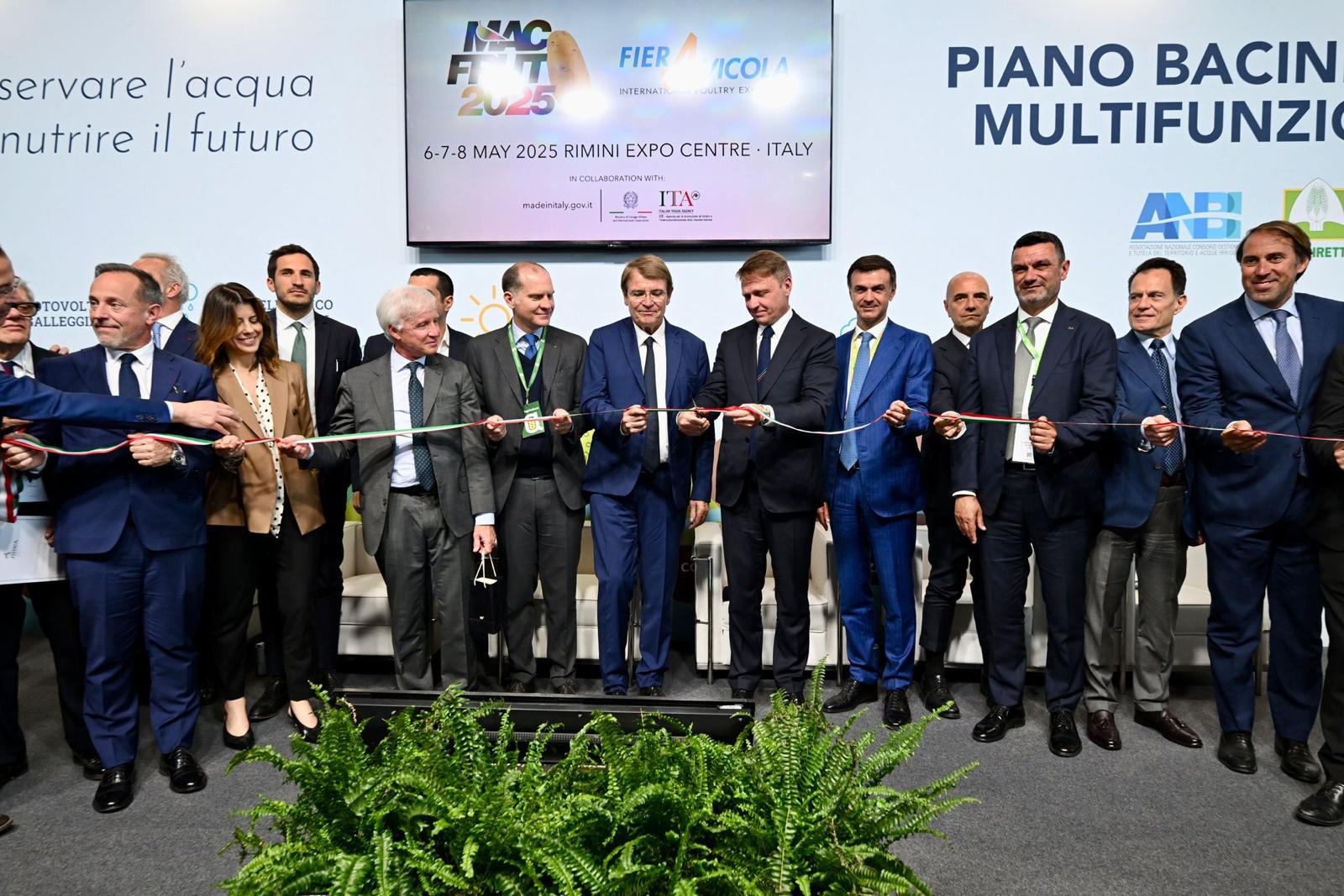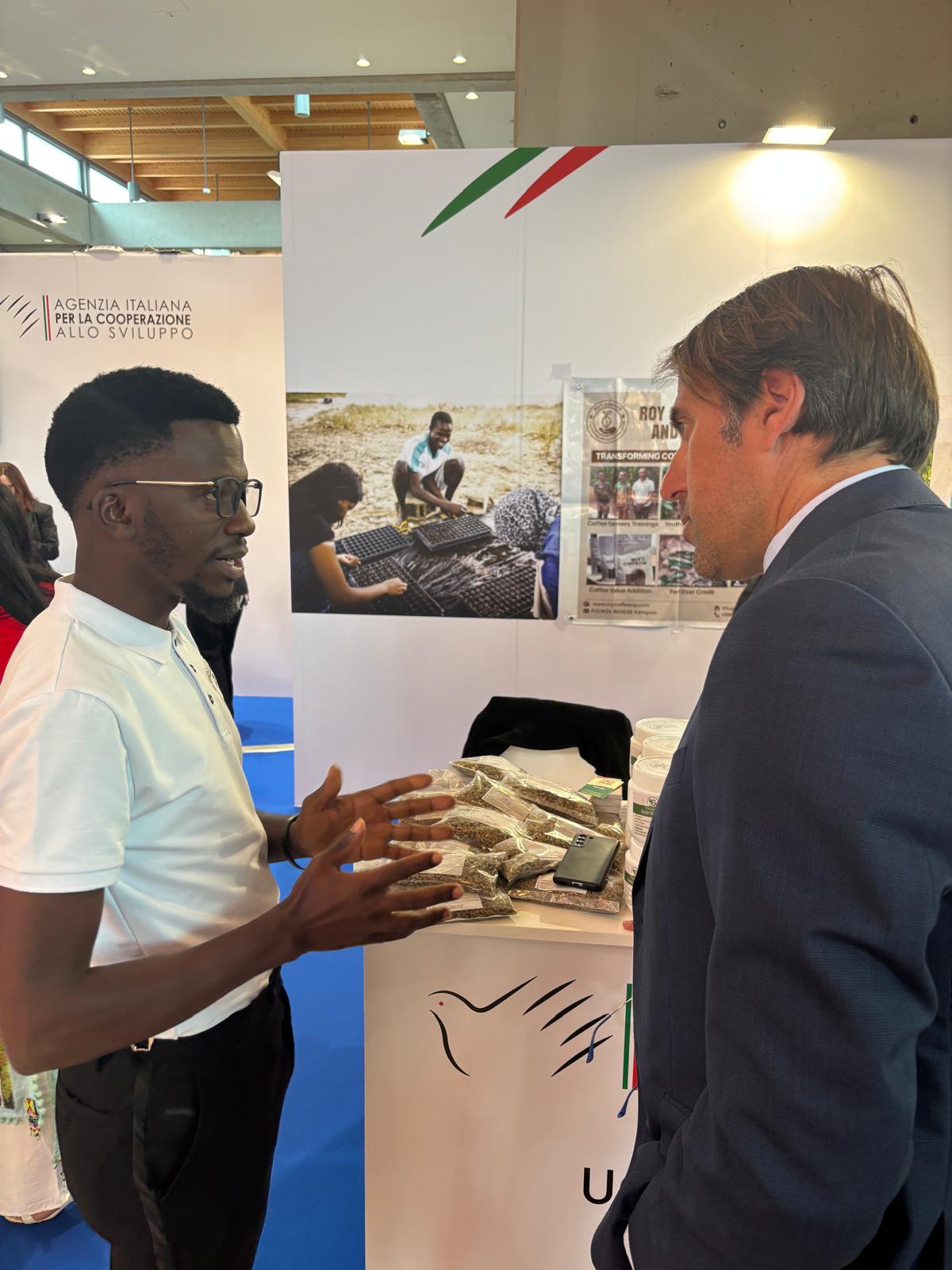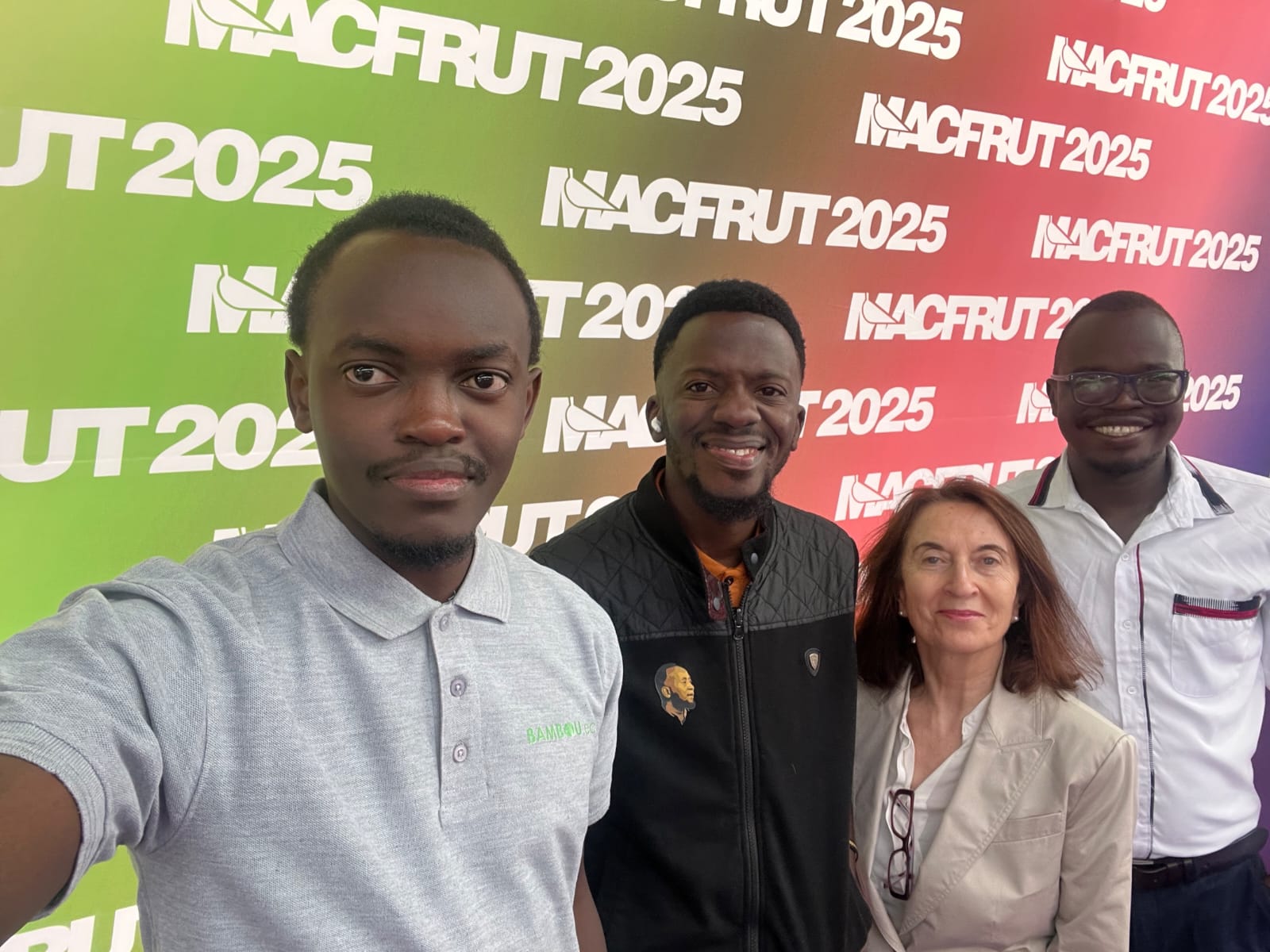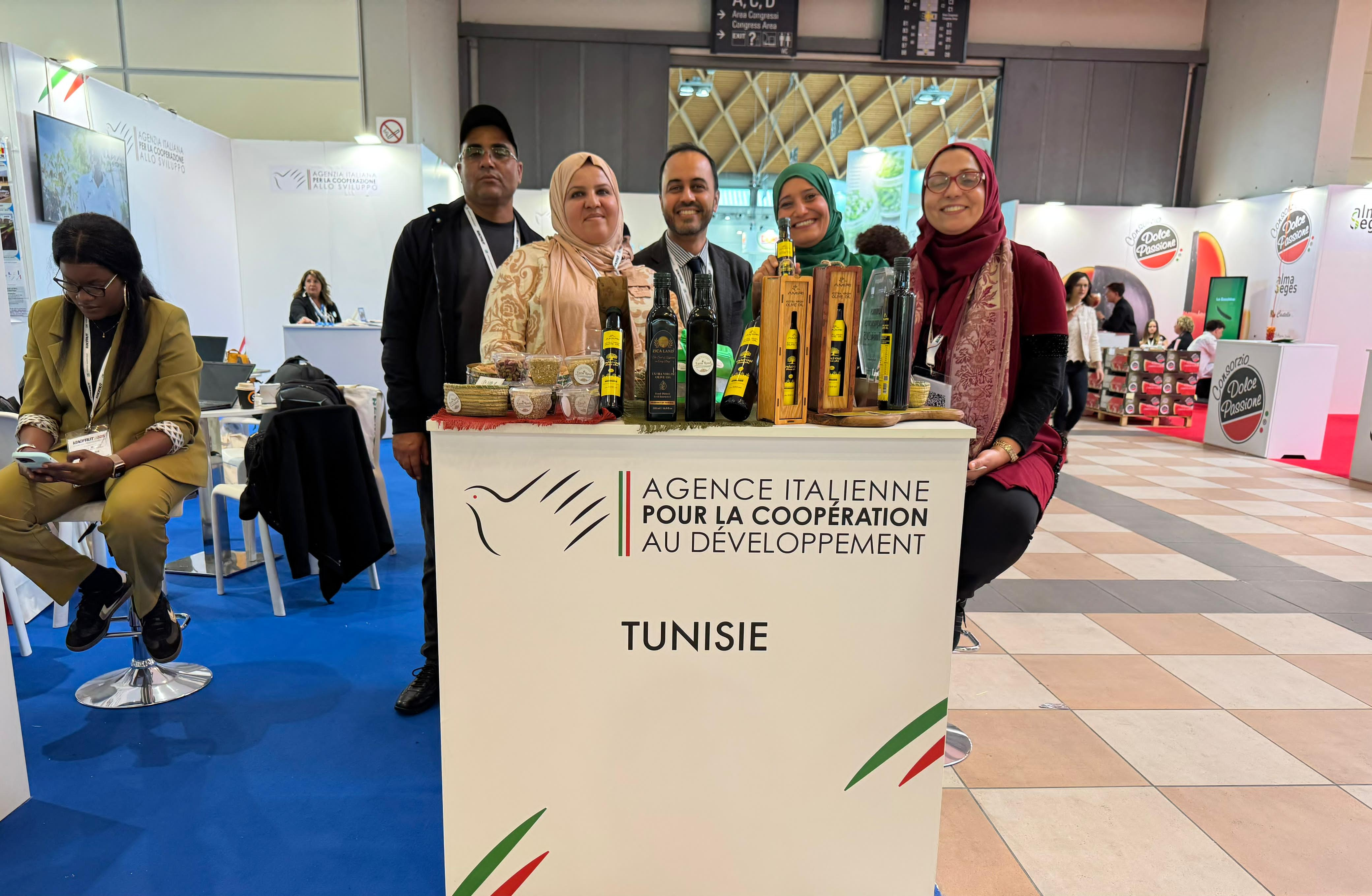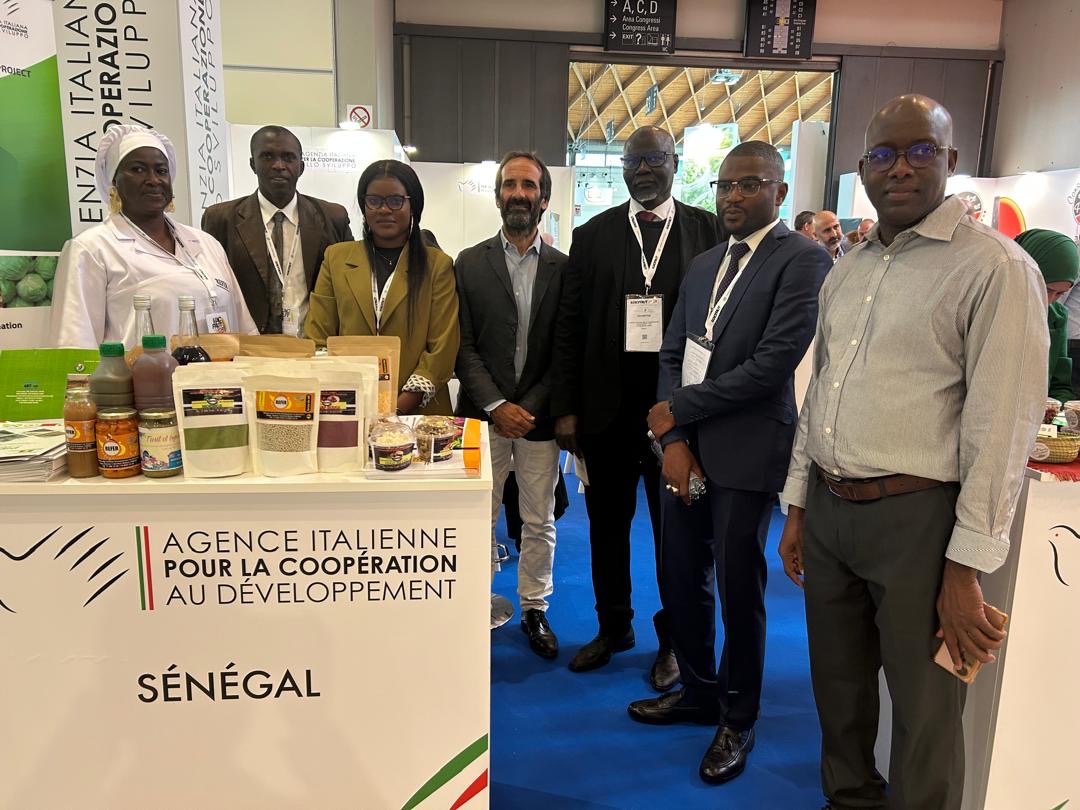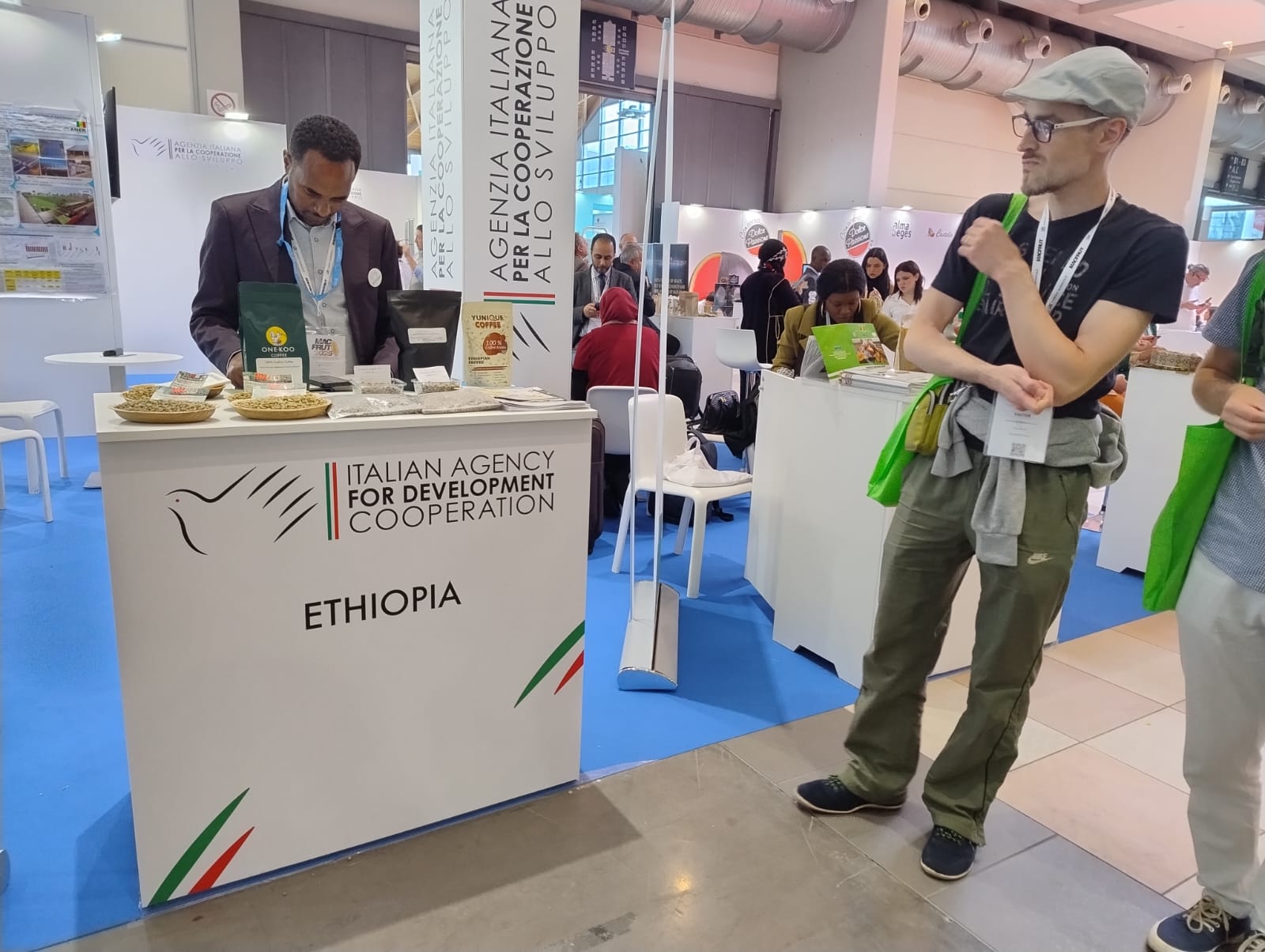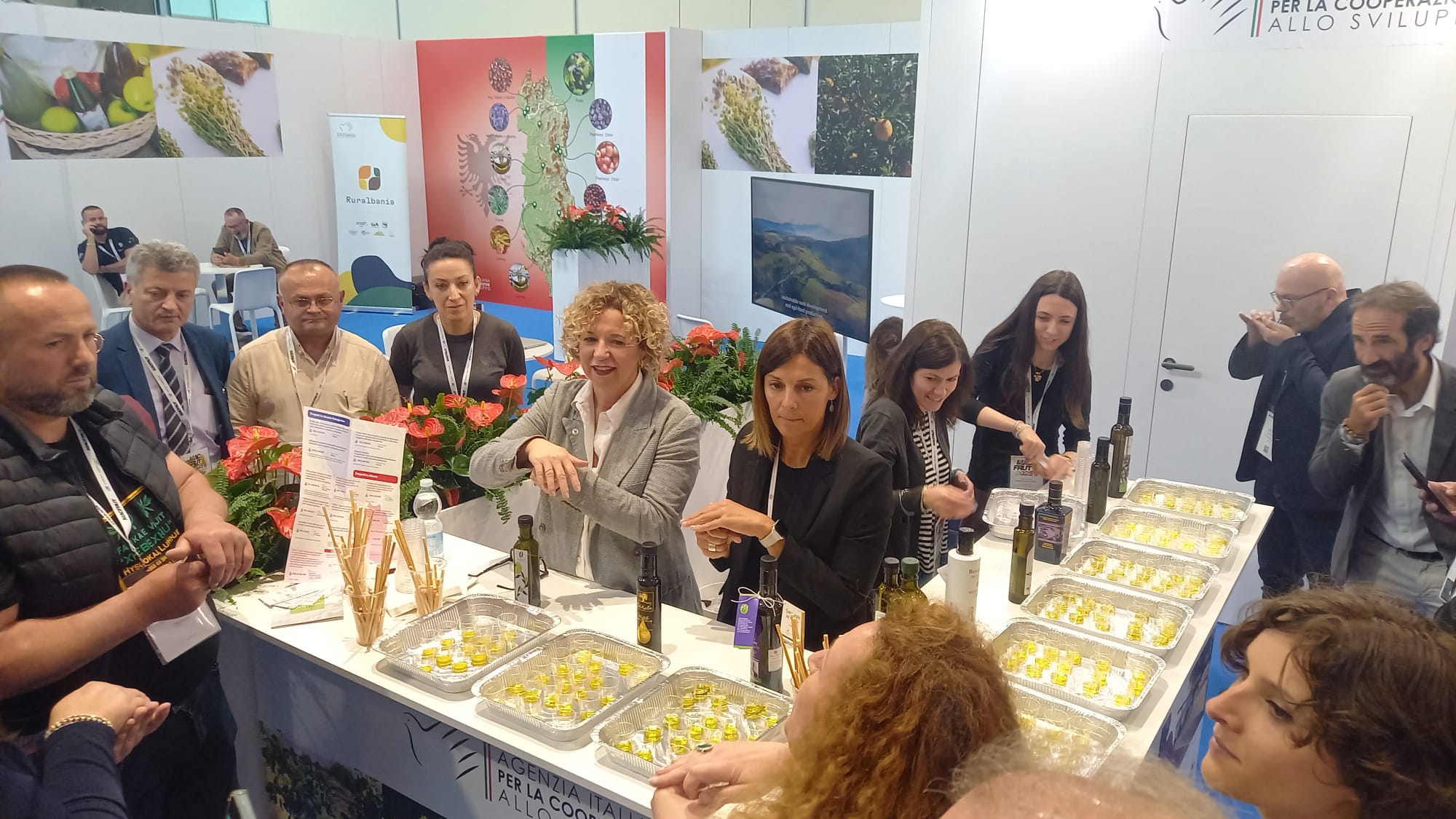The Italian Agency for Development Cooperation (AICS) is once again participating in Macfrut, the leading international trade fair for the fruit and vegetable sector, taking place from May 6 to 8 at the Rimini Expo Center. With a large, interactive booth of over 160 square meters, AICS is hosting delegations from 11 foreign offices (Tunisia, Egypt, Senegal, Mozambique, Ethiopia, Uganda, Palestine, Lebanon, Albania, Cuba, Vietnam) to promote dialogue between institutions, businesses, and territories, highlighting the agri-food excellence of partner countries and the projects supported by Italian Cooperation.
Within the exhibition space, there will be B2B meetings, tastings, thematic discussions, and presentations of local products. New this year is a coffee corner featuring coffee from Mozambique, Cuba, and Ethiopia—the result of projects that integrate quality, sustainability, and inclusion. This confirms the strategic role of the coffee sector in Italian Cooperation’s efforts, supported by a major flagship initiative launched by the Italian Ministry of Foreign Affairs to strengthen and make the coffee sector more resilient in several African countries. AICS Albania will also have a notable presence, with a robust delegation of local producers and a seminar on the Italy-Albania olive oil supply chain, organized in collaboration with the University of Bologna.
Throughout Macfrut, AICS is organizing three thematic panels to highlight experiences and best practices in agriculture, focusing on technology, sustainability, and inclusion:
“Mozambique: Resilient Supply Chains, Innovation, and Training for Food Security”
🗓 May 6 | 🕒 3:00–5:00 PM | 📍 Meeting Room, Business Lounge B4
Organized by the AICS Maputo office, this panel will present the integrated approach of the “Prodai-Beira” and “Agri Urb” projects, which promote urban and peri-urban agriculture through innovative solutions such as hydroponic greenhouses, low-consumption irrigation systems, and agro-processing technologies. It will also showcase initiatives in Tete Province aimed at building small farmers’ capacity to adapt to climate change. The panel will also discuss progress on the CAAM – Manica Agro-Food Center, a key project under the Mattei Plan, which seeks to modernize the horticultural supply chain and improve market access for local producers.
“Ethiopia: The Coffee Challenge and Resilience in Agricultural Value Chains”
🗓 May 7 | 🕒 3:00–4:30 PM | 📍 Meeting Room, Area B5
This second panel, organized by AICS Addis Ababa, will focus on enhancing the Ethiopian coffee value chain, addressing structural challenges in accessing the European market and strategies for strengthening ties with Italy and the EU. It will present support programs for the Ethiopian Coffee and Tea Authority (ECTA) and the Ethiopian Coffee Exporters Association, with representatives sharing future development perspectives. The discussion will also include Ethiopia’s integrated agro-industrial parks in Oromia, Amhara, SNNPR, and Tigray, and the promotion of alternative crops such as avocado, pineapple, durum wheat, tomato, and moringa, with strong impacts on food security and inclusion of women and youth. Topics will also include nutrition surveillance tools and climate resilience strategies, with focus on agricultural credit and risk mitigation.
“Aid Credits: A Financial Tool for Sustainable Agricultural Development”
🗓 May 8 | 🕥 10:30–11:30 AM | 📍 Meeting Room, Business Lounge B4
The third panel, curated by AICS’s Office VII (Cooperation Actors, Partnerships and Development Finance), will explore the use of aid credit as a key instrument of Italian Cooperation to fund initiatives in the agricultural sector. Concrete examples from Senegal, Tunisia, and Ethiopia will illustrate how credits have successfully supported agribusiness, improved productivity, facilitated market access, and promoted youth and female employment. In Senegal, the PAPSEN and PAIS programs contributed to agricultural mechanization and sustainable horticulture. In Tunisia, the TANIT project—implemented by CIHEAM Bari—introduced advanced technologies for non-conventional water recovery and drought management. In Ethiopia, aid credits supported the modernization of cereal and horticultural value chains in strategic rural areas.
AICS will also participate in the special focus on Egypt, a priority country under the Mattei Plan, in a panel organized in collaboration with CDP, ICE, Simest, and Confindustria. The panel will feature innovative Egyptian start-ups (Agrican, OZ-Tech, EGROBOTS) and partners such as CIHEAM Bari.
🗓 May 7 | 🕚 11:00 AM | 📍 Meeting Room, Business Lounge B4
Beyond the scheduled panels, the AICS booth will also host practical testimonies of sustainable agricultural cooperation from:
-
Uganda – agroforestry value chain development in the Karamoja region;
-
Tunisia – initiatives on water efficiency, the blue economy, and non-conventional water use;
-
Senegal – programs for rural development and agricultural mechanization;
-
Palestine – strengthening fruit and vegetable markets;
-
Lebanon – support for cereals, legumes, olive oil, and cherry production;
-
Cuba – promotion of family farming, agroecology, and food sovereignty;
-
Vietnam – projects in mechanization, aquaculture, and agricultural training.
“Participation in Macfrut 2025 is a unique opportunity for AICS to strengthen dialogue, interaction, and synergies between institutions and the productive sector,” stated AICS Director Marco Riccardo Rusconi during the opening ceremony. “It allows us to share best practices and build new alliances for inclusive development, based on the Italian agricultural model—well equipped to address global challenges like food security and climate change through agritech innovation, promotion of local products, and resilient agricultural systems.”
